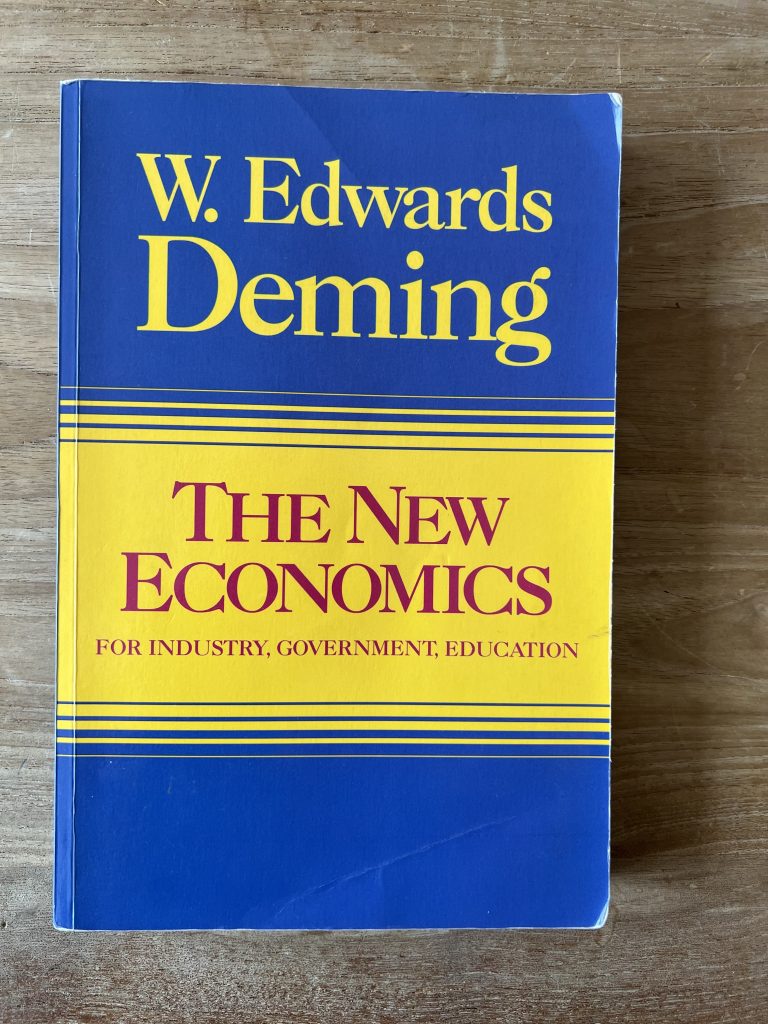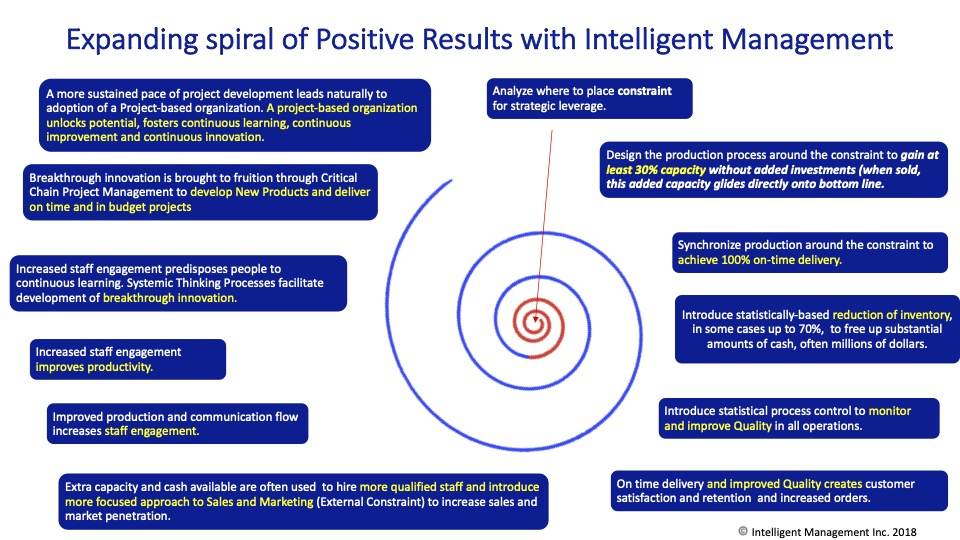Dr. Domenico Lepore, Founder of Intelligent Management, presents the two major books by Dr. W. Edwards Deming that lay the foundations for sustainable prosperity. These books remain mandatory reading for the leaders any organization, from startups to multinationals. Indeed, they are more relevant than ever.

Dr. Deming’s mammoth contribution to modern economics
Dr. W. Edwards Deming is credited with revolutionizing Japan’s industry and making it one of the most dominant economies in the world. He received every possible accolade from Industry, Academia and Government in USA, Europe and Japan before his death in 1993 at the age of 93.
From Theoretical Physics to Statistics to Management, Dr. Deming never ceased to innovate and he cast new light on extremely important topics in a variety of fields. As a Statistician, his contribution to the development of the Theory of Sampling, what he called “enumerative studies”, is foundational for a myriad of modern day applications.
Dr. Deming understood very early in his professional and intellectual development that a different kind of statistical studies, what he called “analytical” (or predictive), could play a pivotal role in the improvement of man made activities. His call to fame was the intuition that the body of statistical work developed by Walter Shewhart could lay the foundation for a revolutionary approach to management, what he called Quality.
‘Out of the Crisis’ was first published in 1982 (with a different name) and then republished in its definitive version in 1986. It is for management what the Theory of Relativity is for science. Just as the work of Albert Einstein unveiled inherent features of space, time and gravity, the 14 points for Management contained in ‘Out of the Crisis’ define the pillars upon which it is possible to build sustainable prosperity for any organization, including government.
‘Out of the Crisis’ (like ‘The New Economics’ that came a few years later) is beyond a “management book”. It defines what management should be about, its constituents and how they interdepend. Just like the Theory of Relativity, it cannot be “read”, it needs to be studied and pondered upon. It is neither for the fainthearted nor for those who are looking for quick fixes. It is a powerful antidote for the lunacy of far too widespread management practices. If understood, it generates that sense of dizzying awareness that should trigger in decision makers, as Deming advocated, “the Transformation of the prevailing style of Management into one of whole system optimization”. This is the foundational inspiration and content of all our work at Intelligent Management
Dr. Deming and his groundbreaking ‘The New Economics’

Dr. Deming is universally known as the statistician who developed a systems approach to management called Quality, the foundation for any sustainable productivity. In his final book, published in 1992 a few months before his demise, he defines the whole spectrum of his monumental legacy to the world.
‘The New Economics’ paints the picture of a completely new approach to lasting prosperity, one based on cooperation and win-win solutions. Dr. Deming builds his “Theory of Profound Knowledge” (TPK) on the interplay among four foundational bodies of Knowledge and how these should inform the work of Industry, Education and Government.
‘The New Economics’ advocates this Knowledge as the ultimate antidote to the fallacy of prevailing management practices based on fragmentation and the pursuit of local optima and as guiding light for an economics based on “whole systems optimization”, through better and better interdependencies.
Every line in this short, dense and stern little book contains (and partially disguises) an underpinning mathematical and philosophical outlook that will elude many; and yet it would be an invaluable reading for anyone tasked with taking important decisions. It is a bridge towards meaningfulness.
‘The New Economics’ is Dr. Deming’s testament to a lifetime spent developing the knowledge necessary to cope with the ever evolving complexity of our times. When he was asked how he would like to be remembered he replied “as somebody who tried to prevent America from committing suicide”.
Dr. Deming’s systemic approach is more relevant than ever. It has been the foundational inspiration and content of all our work at Intelligent Management since 1996.
Systemic positive results that keep expanding
The following is a quote from the management classic, ‘Deming and Goldratt: The Decalogue’ by Lepore & Cohen, North River Press, 1999.
The how in how we manage our organizations has to be radically transformed. Our goal must be a way of behaving and working that allows everyone to win. Management based on co- operation not competition. If we really succeed in thinking and adopting a management approach that allows us to improve the quality of what we produce, then we can spark off the chain reaction that Deming described in ‘Out of the Crisis’:
When we improve quality, costs decrease due to less rework, fewer mistakes, fewer delays and snags; better use of machine-time and materials , productivity improves and when we capture the market with better quality and lower prices, stay in business, provide more jobs.
On the basis of Dr. Deming’s chain reaction, we built the expanding spiral of positive results that is triggered by adopting a systemic approach to management, using the Decalogue management method.

Every organization can benefit from Dr. Deming’s wisdom
Whether you are a startup or a mature multi-national, the systemic wisdom of Dr. Deming is foundational for managing in our age of complexity. It has been our privilege since 1996 to introduce organizations to a systemic approach to management founded on Dr. Deming’s teachings. Let’s start a conversation about how this is relevant for your organization today. Contact us at: intelligentmanagement@sechel.ws
To find out more about ten guided steps to a systemic leap in performance for your company, contact Angela Montgomery at: intelligentmanagement@sechel.ws
SCHEDULE AN INTRODUCTORY CALL WITH US

Intelligent Management works with decision makers with the authority and responsibility to make meaningful change to optimize your company for the digital age. We have helped dozens of organizations to adopt a systemic approach to manage complexity and radically improve performance and growth for over 25 years through our Decalogue management methodology. The Network of Projects organization design we developed is supported by our Ess3ntial software for multi-project finite scheduling based on the Critical Chain algorithm.
See our latest books: The Human Constraint from Routledge; From Silos to Networks: A New Kind of Science for Management from Springer; Moving the Chains: An Operational Solution for Embracing Complexity in the Digital Age by our Founder Dr. Domenico Lepore, and ‘Quality, Involvement, Flow: The Systemic Organization’ from CRC Press, New York by Dr. Domenico Lepore, Dr. Angela Montgomery and Dr. Giovanni Siepe.





Leave a Reply